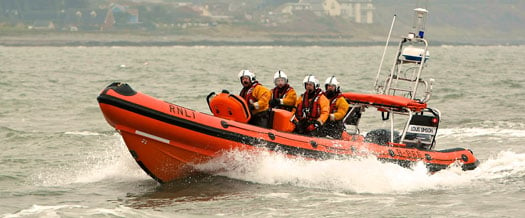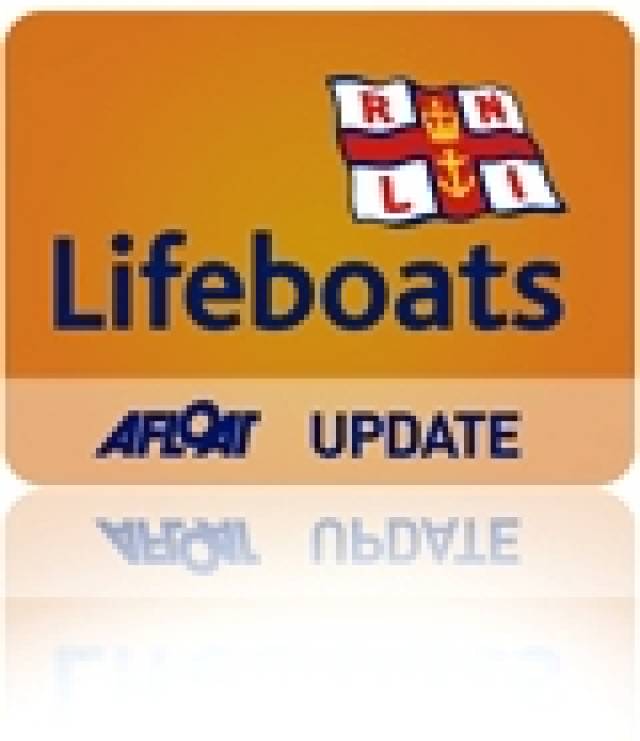#rnli – Skerries RNLI volunteer crew and station committee have this week received their new Atlantic 85 inshore lifeboat. The lifeboat was officially put on service last night (Thursday 28 February 2013). The north county Dublin lifeboat station is the beneficiary from a legacy that is three quarters of a century old. The new lifeboat is named in loving memory of Louis Simson, by his widow Charlotte, who passed away in Paddington in 1938.
The lifeboat arrived into the North Dublin coastal town on Monday 25 February from the Inshore Lifeboat Centre in Cowes on the Isle of Wright to start a week of trails and training with the Skerries RNLI volunteer lifeboat crew. During the handover and training the relief lifeboat Pride of Sherwood remained on service, ready to respond to any emergencies.
The lifeboat is named Louis Simson. Mr Simson was born in 1844 in London and ran a large sharebroking firm, with his bother Augustus, in Tasmania. Louis died on the 28 July 1922 aged 78 and was survived by his wife Charlotte. Mrs Simson wanted a lifeboat named in Louis's memory and this has now been made possible 75 years later. They have no surviving friends or family.
The new lifeboat has some advancements on its predecessor at the station. The Atlantic 85 design allows room for four crew members and more kit than the Atlantic 75 lifeboat, which only had room for three crew.
The lifeboat is powered by two 115horse power engines and has a stronger hull and greater top speed of 35 knots. The added radar allows the crew to operate more effectively in poor visibility and there is also VHF direction-finding equipment.

The Louis Simson. Photo: Eric Walsh
The vessel also has a manually operated self-righting mechanism which combined with inversion-proofed engines keep the lifeboat operational even after capsize. The lifeboat can also be beached in an emergency without causing damage to its engines or steering gear.
The Atlantic 85 carries a full suite of communication and electronic navigation aids, as well as a searchlight, night-vision equipment and flares for night-time operations.
Commenting on the arrival of the new RNLI lifeboat to the town, Mary Courtney Skerries RNLI volunteer lifeboat press officer said: 'Everyone involved with Skerries RNLI is delighted with their new state of the art lifeboat and is looking forward to familiarising themselves with it over the coming weeks. All lifeboat crew have already undergone a familiarity briefing and are currently undergoing intensive training onboard the vessel.
The volunteers with Skerries RNLI would also like to acknowledge both Louis and Charlotte Simson and their generosity to the lifesaving charity. Each time the lifeboat launches, it will have been made possible by this couple who lived a century ago on the other side of the world. We are eternally grateful to them'.
Overseeing the transition is RNLI Divisional Operations Manager Owen Medland added: 'We've had a wonderful week in Skerries familiarising the volunteer crew with their new lifeboat. Skerries RNLI is a busy lifeboat station on the east coast and the crew have handled many challenging callouts. They deserve the very best in lifeboat technology and I wish them well with their new lifeboat'































































